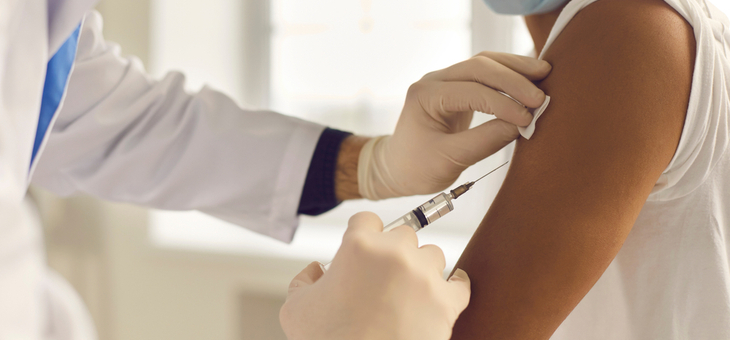Some health experts have expressed concern at the efficacy of the AstraZeneca vaccine, with some stating that we ‘only get one shot’ at getting a vaccination program right, and the Astra Zeneca vaccine may not be the answer.
Others may rue that we don’t have enough of the Pfizer vaccine to sort out the whole country, but are more than okay with the AstraZeneca vaccine, citing evidence of its efficacy rating and the fact that it’s ‘better than nothing at all’.
Now, a third COVID-19 vaccine has been approved in the US and this one works with just one dose instead of two.
The global vaccination program only works when a high percentage of the planet is vaccinated. So far, the two-jab vaccinations are taking too much time and causing other logistical issues, say some health experts.
Read more: When will I get the coronavirus vaccine?
Some epidemiologists are concerned that the virus will mutate, rendering the vaccinations useless by the time enough of the world’s population has received the jab and herd immunity is achieved.
The Johnson & Johnson vaccine may go a long way to mitigating such concerns.
Like approved vaccines before it, the US Food and Drug Administration said this new vaccine will bolster protection against serious illness, hospitalisations and death, but not prevent the transmission of the virus.
And a single dose of the single dose vaccination was 85 per cent protective against the most severe COVID-19 illness.
“This is really good news,” said the director of the National Institutes of Health, Dr Francis Collins.
“The most important thing we can do right now is to get as many shots in as many arms as we can.”
Johnson & Johnson should have 100 million doses of the vaccine in the US by June 2021, and the company is petitioning the World Health Organization for authorisation for emergency use of its vaccine in Europe.
The company aims to produce 1 billion doses globally by the end of the year.
“This is exciting news for all Americans, and an encouraging development in our efforts to bring an end to the crisis,” said President Joe Biden in a statement, adding that “this fight is far from over”.
Approval of yet another vaccine has people asking which is better.
“In this environment, whatever you can get – get,” said FDA advisory panel chair Dr Arnold Monto.
Read more: Can I choose what vaccine I get? What if I have allergies?
While the two-dose Pfizer and Moderna shots have proven 95 per cent protective against symptomatic COVID-19 compared to Johnson & Johnson’s one-dose effectiveness of 85 per cent, experts say it’s not an ‘apples-to-apples comparison’ because the earlier approved vaccines were tested against fewer variants.
Dr Collins said there was no reason to favour one vaccine over another.
“What people I think are mostly interested in is, is it going to keep me from getting really sick?” said Dr Collins.
“Will it keep me from dying from this terrible disease? The good news is all of these say yes to that.”
Johnson & Johnson is also testing the effects of double dosing its single shot vaccination.
Regardless, the advantages of one shot are clear, and include ease of distribution and use in mobile vaccination clinics and the fact that it’s easier to handle, lasting three months in a fridge compared to the frozen Pfizer and Moderna options.
Studies also detected no serious side effects, with the main side effects of the Johnson & Johnson shot being pain at the injection site and flu-like fever, fatigue and headache.
However, the FDA states that for some recipients, there is “a remote chance” they may experience a severe, but treatable, allergic reaction.
The Johnson & Johnson vaccination works similarly to how the AstraZeneca vaccine works. It introduces a common cold virus to carry the spike gene into the body, where cells make harmless copies of the protein to prime the immune system in case the real virus comes along.
The Pfizer and Moderna vaccines use messenger RNA to spur cells to make harmless spike copies.
The Johnson & Johnson vaccine was 66 per cent effective in preventing moderate-to-severe COVID-19 globally, and an independent safety monitoring board indicated that a single-dose of the COVID-19 vaccine was generally well tolerated.
Read more: Research shows vaccine willingness in Australia is high
While many may speculate about the efficacy ratings of one vaccine over another, the fact is, individuals may not have a choice. For the world to have a hope of defeating the virus, as many people as possible need to be vaccinated as quickly as possible to limit the development of new coronavirus variants, writes Associate Professor Maureen Ferran.
Have you been following the roll out and efficiency of the vaccines? Are you happy to see further options available?
If you enjoy our content, don’t keep it to yourself. Share our free eNews with your friends and encourage them to sign up.

